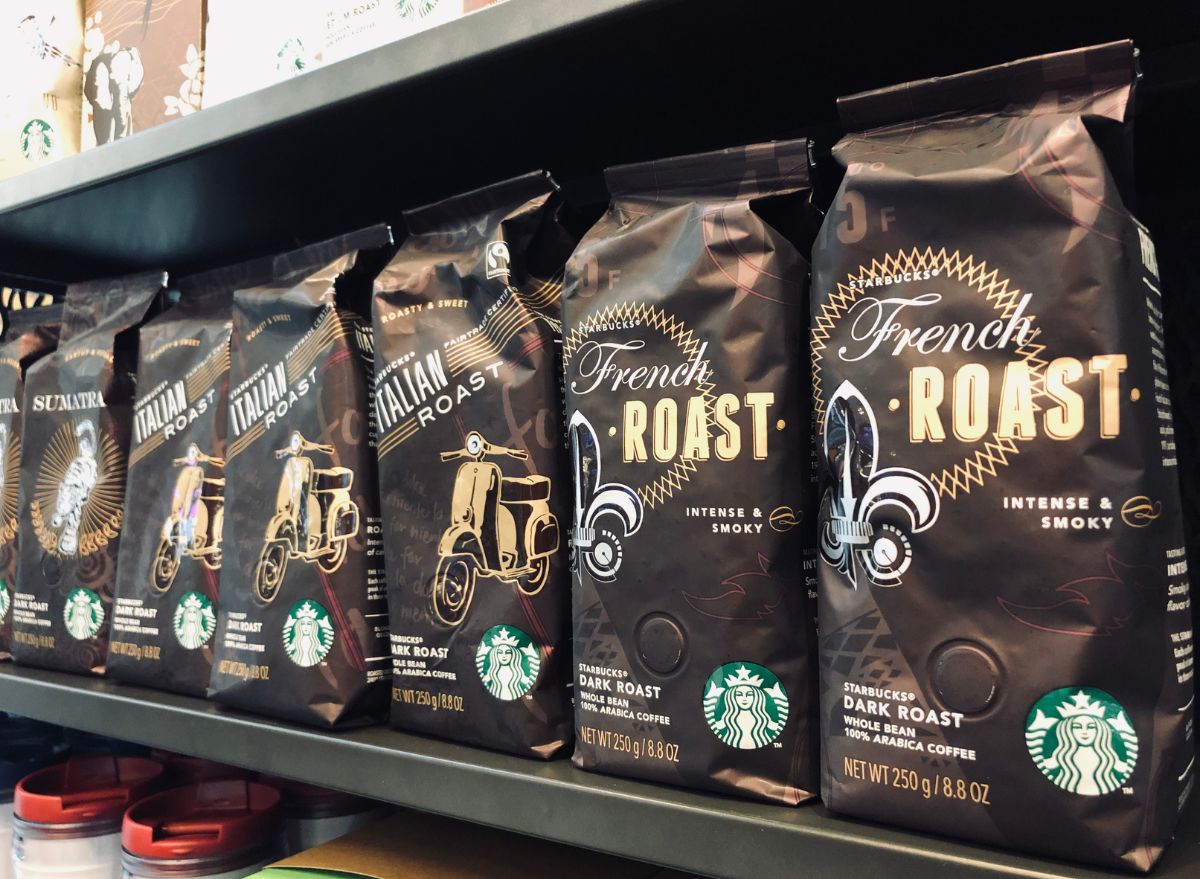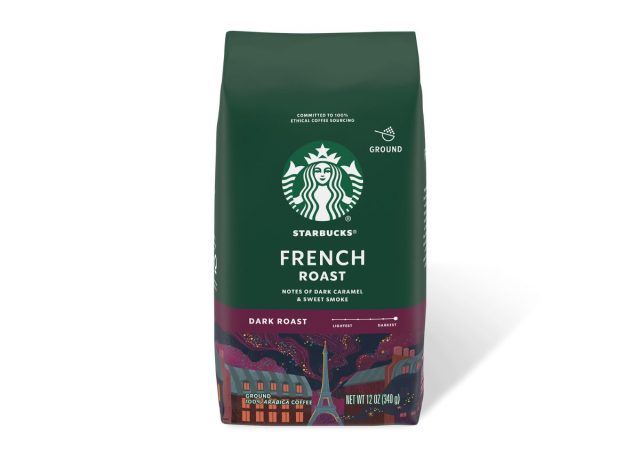Starbucks Coffee Contains This Potentially Harmful Additive, New Complaint Alleges

In a complaint that has us flashing back to the Subway tuna fish scandal, a coffee company called Puroast alleges that a Starbucks coffee blend contains a potentially harmful additive.
Puroast, which makes several blends of coffee for home consumption, filed a complaint with the North Carolina Department of Justice's Consumer Protection Division alleging that Starbucks Dark French Roast coffee had higher than normal levels of potassium. According to The New York Post, the company conducted independent testing which revealed that the blend has 13% more potassium than Starbucks' House Blend.
The additional potassium would help to tone down the bitterness of the blend, according to the complaint, and would likely be intentional. "These significant variances … can only be explained by the purposeful addition of potassium to the coffee during Starbucks' production process," the complaint states.
The company alleges, through the complaint, that Starbucks is duping some serious coffee drinkers by not revealing the additive. They claim the "100% Arabica" label is misleading to coffee drinkers who believe Arabica beans are of higher quality.
It also claims that those who have kidney disease could be harmed by too much potassium in the bloodstream, which can result in a condition called hyperkalemia. An 8-ounce cup of coffee contains, on average, about 116 milligrams of potassium and, according to the National Kidney Foundation, is generally safe at that level. The Foundation recommends no more than three cups of coffee per day. However, undeclared potassium could potentially harm those with kidney disease if they are unaware of the excess potassium, asserts Puroast's claim.

Starbucks denied that it adds anything to its Dark French Roast. "We are aware of the complaint Puroast has filed with the North Carolina Consumer Protection Division and believe it is without merit," a company spokesperson said. As Puroast makes coffee that claims to have "7 times more antioxidants" and "70% less acid" than other coffees, according to its website, it would potentially benefit from taking down the large competitor, especially locally where it is sold.
You may recall an independent lab was also used to test the tuna fish served at some Subway locations in Jan. 2021. The testing revealed that the chain's sandwiches didn't have any actual tuna in the mix. While the chain defended its product, the issue did hurt the optics of the brand. We'll see how far this claim goes for Starbucks.








